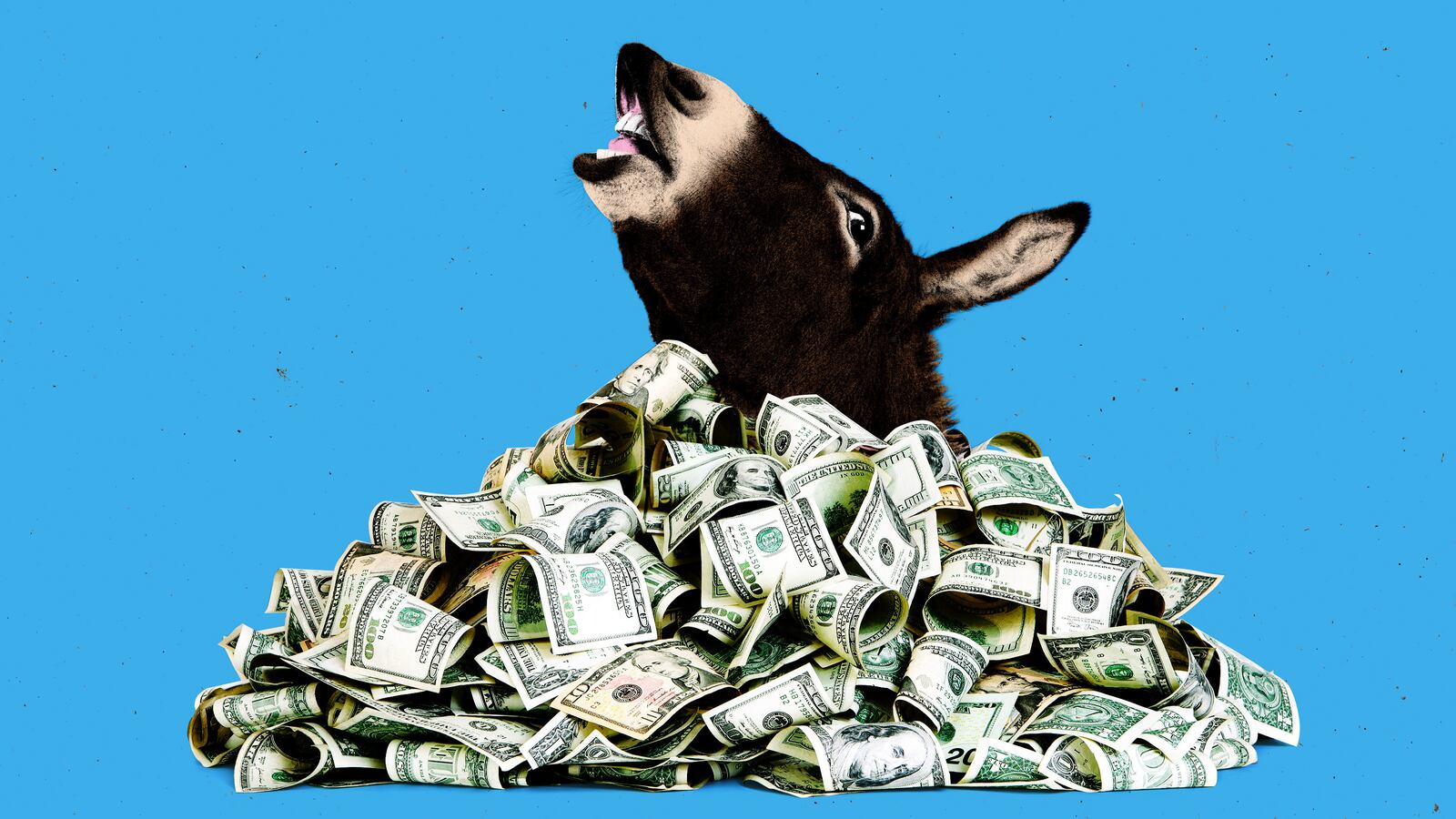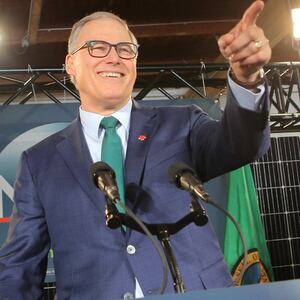The fight over big money in the 2020 Democratic primary is reaching a new pitch on Friday with an open letter from advocates aimed at presidential candidates benefiting from a single-candidate Super PAC.
End Citizens United, the Progressive Change Campaign Committee, and a coalition of other groups are set to release the letter which will call on candidates to disavow and shut down any such PACs, The Daily Beast has learned. While candidates are legally not permitted to coordinate with Super PACs, the concern with single-candidate Super PACs stems from the fact that they are often run by close political or personal allies, effectively becoming a campaign booster.
“Single candidate super PACs allow for a greater risk of undue influence and corruption by allowing candidates to circumvent the strict limits on how much money they can receive,” Adam Bozzi, communications director for End Citizens United, told The Daily Beast. “At a time when voters want candidates to lead on anti-corruption and government and election reforms, welcoming a single candidate super PAC is a enormous step in the wrong direction.”
The salvo from these reform-minded groups comes after a Super PAC supporting Gov. Jay Inslee’s (D-WA) presidential campaign quickly spent a reported seven figures for cable ads in Iowa, giving him a boost in a crowded primary with few clear frontrunners. End Citizens United previously sent a letter aimed directly at Inslee urging him to disavow the PAC, especially given the fact that the operative who launched it, Corey Platt, previously served as the political director of the Democratic Governors Association, which Inslee chaired last year before running for president.
Inslee’s campaign did not return a request for comment. So far, the governor has resisted calls to disavow the Act Now on Climate PAC.
“They want to defeat climate change, and this is something I’ve been very passionate about for decades,” the Washington Democrat said at a recent campaign stop in Iowa. “So, no, I won’t be condemning any organization that’s trying to defeat climate change.”
It’s not just Inslee that ECU, PCCC and the rest of the coalition appears to be targeting. The groups are also asking candidates to be more proactive in encouraging Super PACs that exist and support their candidacies to disband. And in doing so, they appear to be spotlighting the arrangement that surrounds Sen. Cory Booker’s (D-NJ) presidential campaign, which is being bolstered by a Super PAC formed by the senator’s former college classmate Steve Phillips, a Democratic donor and senior fellow at the Center for American Progress.
Booker, and his campaign, have maintained that the New Jersey Democrat opposes Super PACs, including Phillips’ Dream United. But he has not explicitly asked for it to be shut down or disavowed it. And that stance has been viewed as insufficient by PCCC and End Citizens United.
“This is in part about purifying the Democratic party brand,” Adam Green, co-founder of PCCC told The Daily Beast. “If there’s not a very strong statement now, then the floodgates could open and [the primary] could be dominated by big money.”
Booker’s campaign did not responded to a request for comment.
What is left unresolved by the coalition of campaign finance reformers is what these candidates should do about supportive Super PACs should they win the primary and make it to the general election..
Thus far, the campaigns for Sen. Elizabeth Warren (D-MA), Sen. Kamala Harris (D-CA) and Sen. Kirsten Gillibrand (D-NY) have all said they don’t want support from Super PACs. And unlike Booker—who has said he too doesn’t want that support—there are no Super PACs backing their candidacies. But Warren, in explaining that she would forgo both Super PACS and high-dollar fundraisers during the primary, notably left open the possibility that her stance could change in the general.
“By then we’ll be up against a Republican machine that will be hell-bent on keeping the White House,” she wrote in a Medium post. “They will have PACs and Super PACs and too many special interest groups to count, and we will do what is necessary to match them financially.”
The view from some experienced Democratic operatives is that Warren’s caveat is driven by practicality; that shunning any Super PAC in the general election would be a fool’s errand, effectively leaving the Democratic nominee a significant money disadvantage.
“Any candidate who unilaterally says I won’t do Super PACs or I won’t do outside groups or I won’t do negative ads is probably not going to get nominated by us,” Steve Elmendorf, a lobbyist who previously served as deputy campaign manager for Sen. John Kerry’s 2004 presidential bid said.
Campaign finance reformers have made the case that a candidate can actually raise more money by coming out firmly against super PACS. They point to Sen. Bernie Sanders’ (I-VT) tremendous grassroots fundraising success as proof of such. But Elmendorf argued that by the time the general election rolled around, no one would actually care if a super PAC was operating.
“I think Democrats, all they really care about is beating Donald Trump,” he said. “And I think nobody wants to tie your hands behind your back. If there is a way to beat Donald Trump using a Super PAC, I think people should use a Super PAC.”







